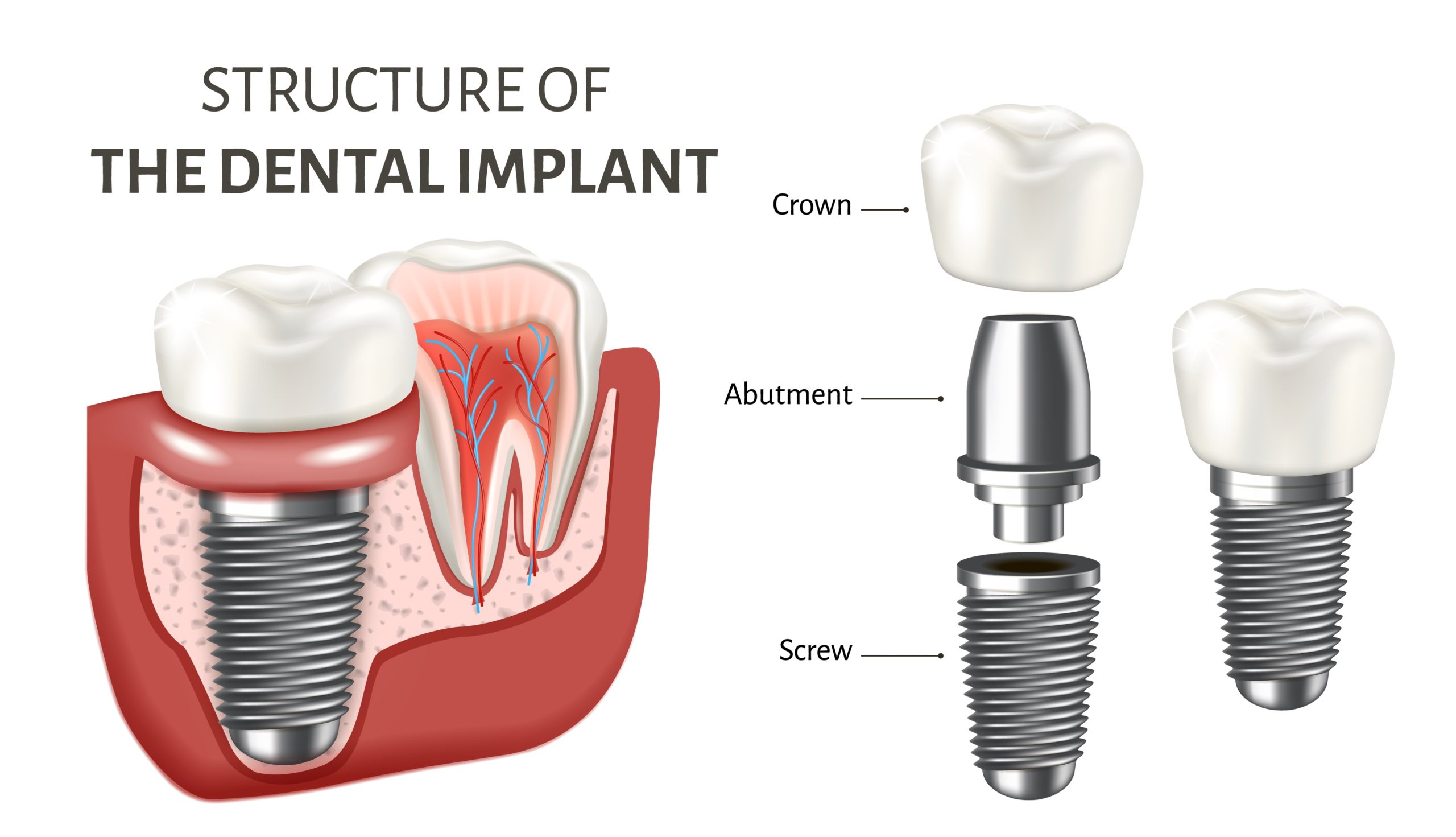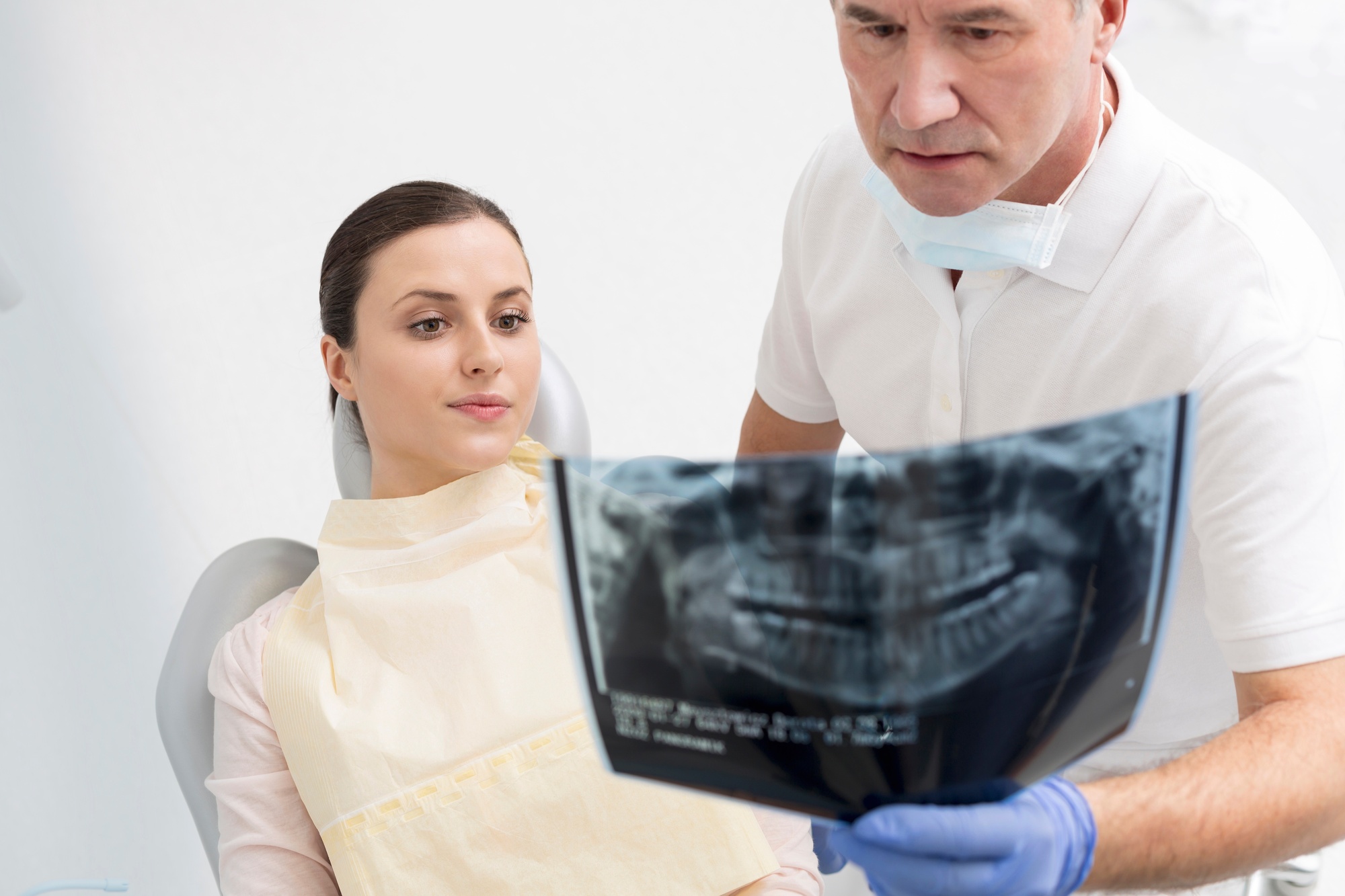A complete and healthy set of teeth makes for a beautiful smile and easy eating and talking. Their loss can disrupt this ease to varying degrees for many people, but especially for older folks. And although dentures are popular, there are times when dental implants are the better solution.
Are you a good fit for dental implants? This blog delves into the various considerations that must be weighed to determine whether you should opt for them.

An Overview of Dental Implants
Before discussing candidacy, it’s essential to understand the basic structure of the common types of dental implants. It consists of three main elements:
- The crown: This is the visible portion of the implant, meticulously designed to emulate the appearance of a natural tooth and seamlessly blend with it. It does more than serve an aesthetic function. It must be durable because, like natural teeth, they must be used for regular chewing and biting.
- The implant fixture: This component is a small titanium screw surgically implanted into the jawbone, serving as the root for the artificial tooth.
- The abutment: This part connects the crown and the implant fixture, facilitating the integration of the whole system.
Evaluating a candidate for a dental implant procedure involves several steps, including assessing oral and general health. The following sections will go into what they generally look like.
Medical History Assessment

The patient’s medical history is reviewed for any existing medical conditions, medications, allergies (particularly to anesthesia), and previous surgical procedures. Certain medical conditions can complicate the process, resulting in poor healing or affecting the procedure’s success through things like failed osseointegration.
Here are common medical conditions that are relative or absolute contraindications in getting dental implants:
- Relative Contraindications
Relative contraindications for dental implants include the following:
- Inadequate Bone Quality or Quantity
Bone loss can occur for various reasons, including periodontal disease and long-term tooth loss. Additional procedures like bone grafts may be necessary if the quality or quantity is inadequate.
- Gum Disease (Periodontal Disease)
Healthy gums are essential for successful implant surgery as they may affect the bone and tissues that support the implant.
- Smoking
Smoking can significantly reduce the success rate of dental implants. It affects blood circulation to the bone and tissues, slowing the healing process and making it more difficult for the implant to osseointegrate or bond with the bone.
- Poor Oral Hygiene
Inadequate oral hygiene can lead to an infection around the implant, a condition known as peri-implantitis. If untreated, it can cause bone loss around the implant and eventual implant failure.
- Medical Conditions
Certain systemic conditions such as uncontrolled diabetes, cancer, autoimmune diseases, and conditions that suppress immunity interfere with the body’s ability to heal.
- Certain Medications
Some drugs, like anticoagulants and bisphosphonates, may affect the success of dental implant surgery.
- Excessive Grinding or Clenching of Teeth (Bruxism)
This can place excessive pressure on the implant, leading to damage or failure.
While these risk factors can affect the success of dental implants, they do not automatically preclude someone from being a candidate for the procedure. A thorough evaluation by a dental professional can help identify these risks and develop a treatment plan to manage them effectively.
- Absolute Contraindications
In contrast, these conditions are fully contraindicated. They can increase the risk of serious complications like endocarditis, infections, and uncontrolled bleeding.
- Recent heart attack (within the last three months)
- Stroke (within the last three months)
- Valvular prosthesis
- Symptomatic congestive heart failure (symptomatic)
- Active Chronic Obstructive Pulmonary Disease (COPD)
- Immunosuppression
- Bleeding disorders
- Active cancer treatment
- Substance abuse
- Mental illness
- Intravenous bisphosphonate use
- Unmanaged diabetes
If dental implants aren’t feasible, you still have more options for tooth replacement. Just be transparent with your health condition and history and stay open to recommendations from your healthcare provider.
Oral Examination
Here are some critical components of the oral examination for dental implants:
- Visual Examination
Depending on the extent, bleeding gums, swelling, and any signs of infection or oral disease may disqualify the candidate for the procedure.
- Periodontal Assessment
The dentist will check the gums and the bone around the teeth for periodontal disease, which can lead to bone loss and potentially compromise the success of the dental implant.
- Evaluation of Remaining Teeth
The dentist will examine the condition of any remaining teeth to determine if they are healthy or if any additional dental work is needed.
- Occlusal Analysis
The dentist will assess the patient’s bite (how the teeth come together) to ensure that it is balanced and that no issues (e.g., teeth grinding) could damage the implant.
- Diagnostic Imaging
This is a crucial part of the oral examination process. X-rays or 3D imaging techniques such as Cone Beam Computed Tomography (CBCT) show the jawbone’s quality and health where the implant is screwed.
Lifestyle Considerations
A patient’s lifestyle can also impact the success and longevity of the procedure. Smokers, alcoholics, and people with poor oral hygiene are not considered good candidates. These lifestyle factors should be discussed with the dentist or oral surgeon to manage risks effectively.
Know Your Options
While dental implants offer an advanced and reliable solution for tooth replacement, determining candidacy is a must. It involves a comprehensive evaluation of a patient’s overall and oral health, lifestyle habits, and bone density.
You are deemed a good candidate if you have good bone density, healthy gums, and manageable health issues. It’s imperative to lay this out with a dental professional to assess your suitability.
Disclaimer
The Content is not intended to be a substitute for professional medical advice, diagnosis, or treatment. Always seek the advice of your physician or other qualified health provider with any questions you may have regarding a medical condition.